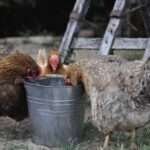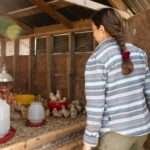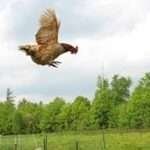Raising chickens is a rewarding and enjoyable experience, but it also comes with its share of challenges, one of which is dealing with potential snake encounters. As chickens spend a significant amount of time outdoors, their coops can attract snakes seeking food or shelter. While most snakes are harmless and beneficial to the ecosystem, some can pose a threat to chickens and their keepers. Understanding the risks associated with snakes and implementing preventive measures is essential to ensure the safety by limiting the interactions of snakes and chickens.
Understanding the Attraction: Why Snakes and Chickens Come into Contact:
Chickens and their coops unintentionally create an environment that attracts snakes. Several factors make chicken coops an appealing habitat for these reptiles:
- Food Sources: Snakes are opportunistic feeders and are drawn to areas with abundant food. Chicken coops often offer a ready supply of eggs, chicks, and even adult birds, making them attractive hunting grounds for snakes.
- Shelter and Protection: Coops provide excellent hiding spots for snakes, protecting them from predators and extreme weather conditions. The warmth generated by compost piles or heat lamps can also attract snakes seeking a comfortable place to rest.
- Water Availability: Snakes, like all animals, require access to water. If you have a water source near the coop, it might unintentionally lure snakes into the area.
- Chicken Feed: Spilled or leftover chicken feed attracts rodents, which, in turn, can draw snakes seeking an easy meal.
The Common Snake Species Found Near Chicken Coops:
Understanding the types of snakes commonly found near chicken coops can help you identify potential threats and develop appropriate preventive measures. Some common snake species you might encounter include:
- Rat Snakes: Non-venomous rat snakes are often beneficial to chicken keepers as they help control rodent populations. However, their presence can still cause concern among chicken owners.
- Garter Snakes: Harmless garter snakes are common in many regions and are attracted to chicken coops due to the abundance of insects and small prey.
- Black Snakes: Black snakes, such as the black rat snake, are large non-venomous snakes that primarily prey on rodents and might also eat chicken eggs or chicks.
- Copperheads and Rattlesnakes: Venomous snakes like copperheads and rattlesnakes can pose a significant risk to both chickens and humans. While they are not typically found in all areas, it’s essential to be aware of their potential presence.
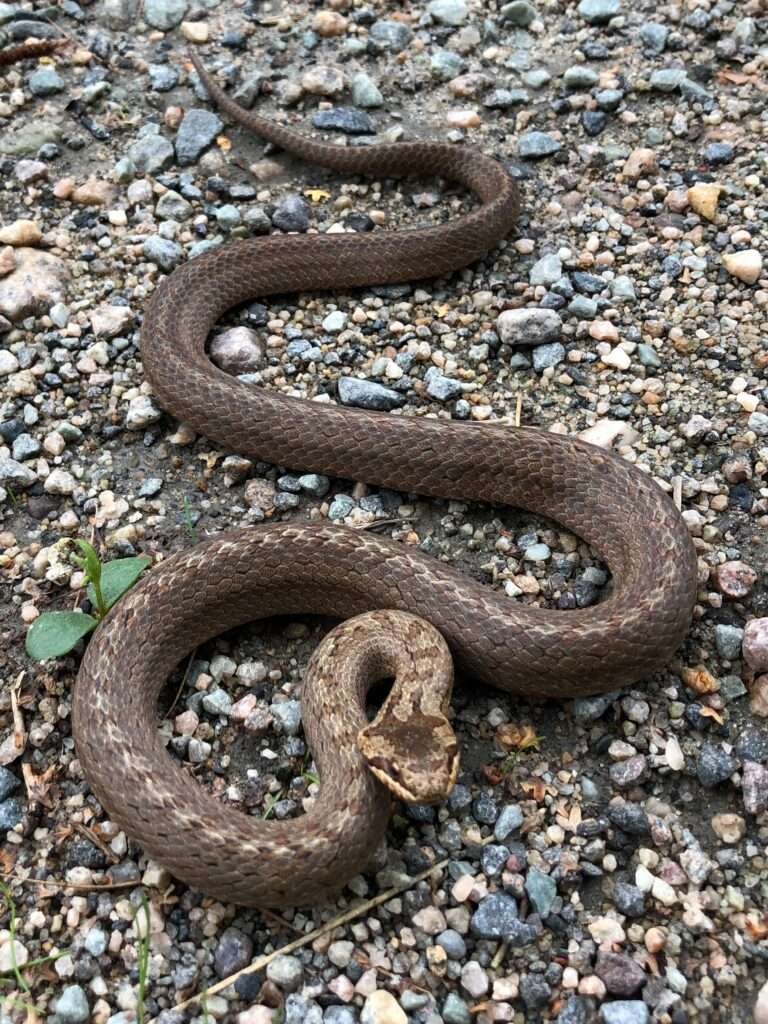
Likelihood of Snakes and Chickens Encounters in Your Area:
The likelihood of encountering snakes near your chicken coop can depend on several factors:
- Geographic Location: Snakes are more prevalent in some regions than others. Understanding the types of snakes native to your area is crucial for implementing appropriate preventive measures.
- Surrounding Environment: Your coop’s proximity to natural habitats, water sources, and wooded areas can influence the likelihood of snake encounters.
- Seasonal Patterns: Snake activity often varies with the seasons. They might be more active during warmer months when they seek food and mates.
Reducing Snake Attraction and Access to Coops:
Taking proactive steps to reduce snake attraction and prevent their access to your coop is crucial. Some effective strategies include:
- Secure Coop Construction: Ensure your coop is well-constructed with tight-fitting doors, windows, and flooring to prevent snake entry.
- Seal Gaps and Openings: Regularly inspect the coop for any gaps or openings that might allow snakes to slip inside.
- Elevate Coop from the Ground: Elevating your coop above the ground can make it less appealing to snakes, as it removes potential hiding spots.
- Remove Hiding Spots: Clear away brush, woodpiles, and debris around the coop that might provide hiding spots for snakes.
- Manage Vegetation: Keep grass and vegetation trimmed near the coop, reducing hiding places for snakes.
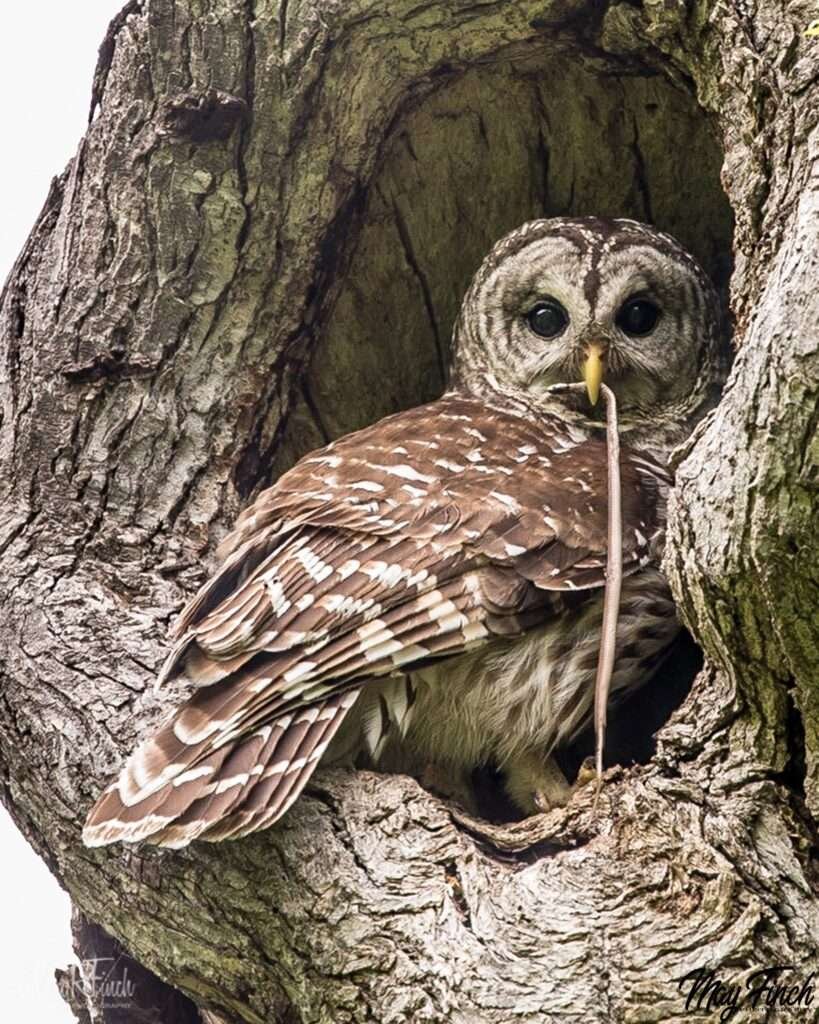
Implementing Natural Deterrents:
Using natural deterrents can help discourage snakes from approaching your coop. Consider these methods:
- Snake-Repellent Plants: Certain plants, like marigolds, lemongrass, and lavender, have natural repellent properties that snakes dislike. Planting these around the coop can help deter them.
- Predator Presence: Encouraging natural predators like owls, hawks, and even cats or dogs to frequent the area around the coop can discourage snakes from approaching.
Preventing snake encounters with your chickens requires a proactive approach that addresses the factors attracting snakes to the coop and the potential risks they pose. In the next sections of this article, we will explore safe handling practices when encountering snakes, how to set up effective barriers and traps, and the role chickens play in deterring snake presence. Armed with this knowledge, you can create a safer environment for your flock and minimize the risk of snake interactions.
Safe Practices for Handling Snakes: What to Do If You Encounter a Snake:
While preventive measures can significantly reduce snake encounters, it’s essential to know how to handle a snake encounter safely if one does occur. Follow these guidelines:
- Stay Calm: If you encounter a snake near your coop, stay calm and avoid sudden movements. Most snakes will retreat if they sense no threat.
- Identify the Snake: Knowing whether the snake is venomous or non-venomous is crucial for your safety. Venomous snakes have distinct features like triangular heads, pit-like openings between the eyes and nostrils, and rattles (in rattlesnakes).
- Give the Snake Space: Maintain a safe distance from the snake and avoid provoking it. Remember that snakes typically prefer to avoid confrontation if given the opportunity to retreat.
Setting Up Snake Traps and Barriers:
In situations where preventive measures are not enough, you can set up snake traps and barriers around the coop to deter and capture snakes.
- Snake-Proof Fencing: Installing snake-proof fencing around your coop can prevent snakes from entering the area. Use hardware cloth with small mesh openings (around ¼ inch) to make it difficult for snakes to pass through.
- Snake Traps: Commercial snake traps or homemade traps can be used to capture snakes safely. When using traps, always follow local laws and regulations regarding the humane trapping and relocation of snakes.
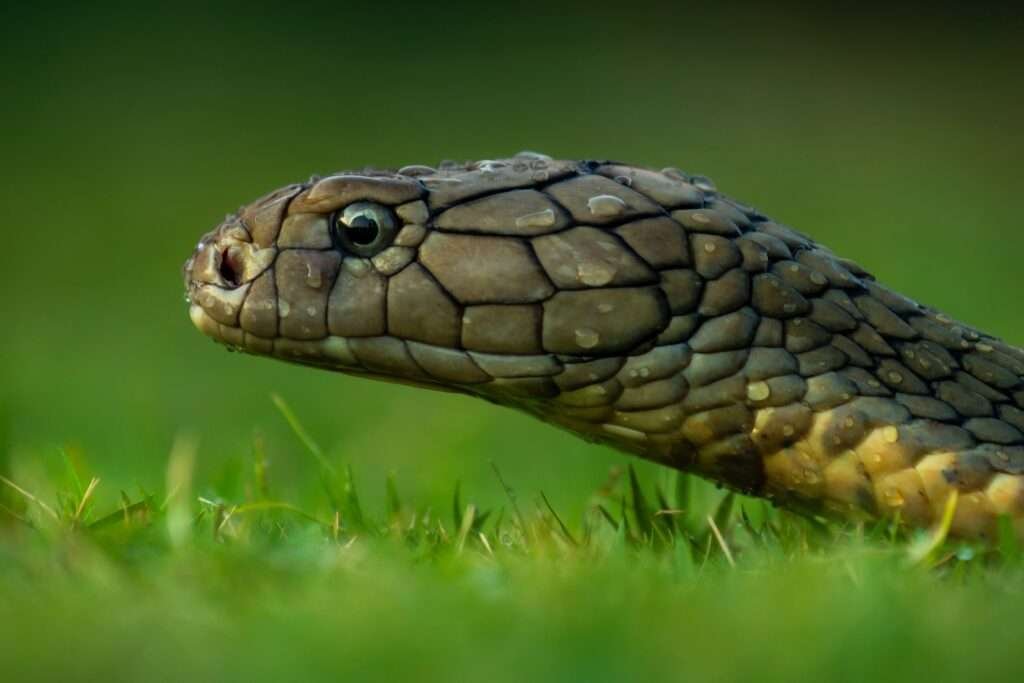
The Role of Chickens in Snake Prevention:
Chickens can play a part in deterring snakes due to their natural instincts.
- Alertness and Alarm Calls: Chickens are vigilant creatures and will often make loud alarm calls in the presence of predators, including snakes. Pay attention to your chickens’ behavior, as their alarm calls can alert you to potential snake encounters.
- Dust Bathing and Odors: Chickens’ dust-bathing behavior creates odors that can deter snakes and other pests. Providing a designated dust bath area near the coop encourages chickens to engage in this natural behavior.
Monitoring and Regular Inspections:
Regular monitoring and inspections of the coop and surrounding areas are essential to identify signs of snake presence and promptly address any potential issues.
- Check Coop Openings: Regularly inspect coop doors, windows, and any access points for signs of snake activity or attempted entry.
- Inspect Nesting Boxes: Snakes might use nesting boxes as hiding spots, so inspect them regularly to ensure they remain free of intruders.
Educating and Preparing for Snakes and Chickens
- Educate Yourself and Family Members: Learn about the snake species in your area and how to identify venomous snakes. Teach your family members, especially children, about snake safety and what to do in case of an encounter.
- Snake Handling Training: If you live in an area with venomous snakes, consider attending a snake-handling training course or workshop to learn how to respond to encounters safely.
- Create an Emergency Plan: Establish a plan for responding to snake encounters, including emergency contacts and the nearest veterinary facility equipped to handle snakebite cases.
Snakes and Chickens
While encountering snakes around your chicken coop can be disconcerting, implementing preventive measures and understanding safe handling practices can help you manage the risks effectively. By addressing the factors that attract snakes to the coop, such as food sources and hiding spots, and setting up deterrents like natural plants and predator presence, you can create a less appealing environment for snakes. Additionally, educating yourself and your family on snake identification and appropriate responses to encounters is essential for ensuring everyone’s safety.
Remember that snakes play a valuable role in the ecosystem as pest controllers, and most species are harmless to humans. Nevertheless, it’s crucial to exercise caution and respect when dealing with snakes to protect both your chickens and yourself. By striking a balance between appreciation for nature and responsible snake management, you can create a harmonious and safe environment for your flock of chickens.



